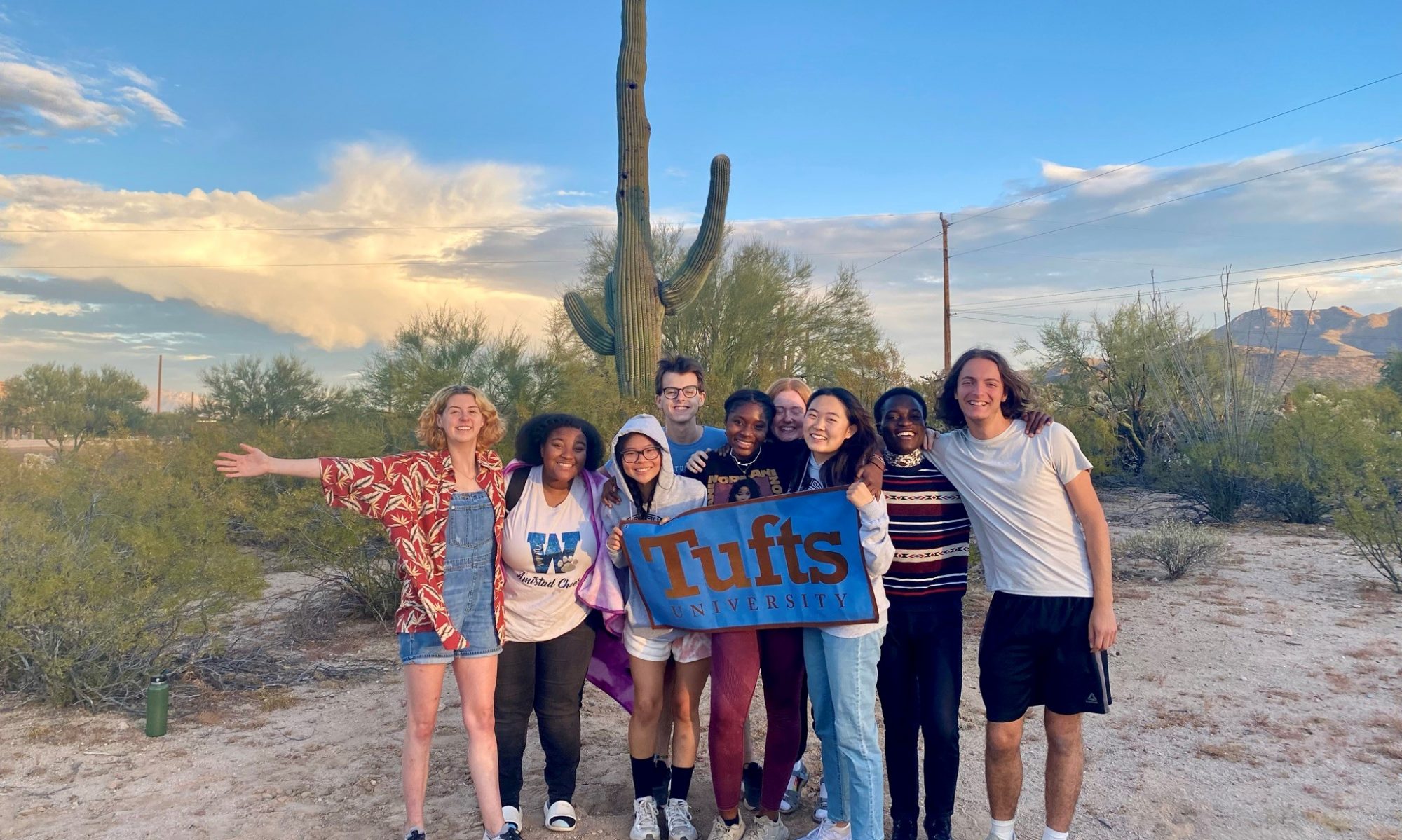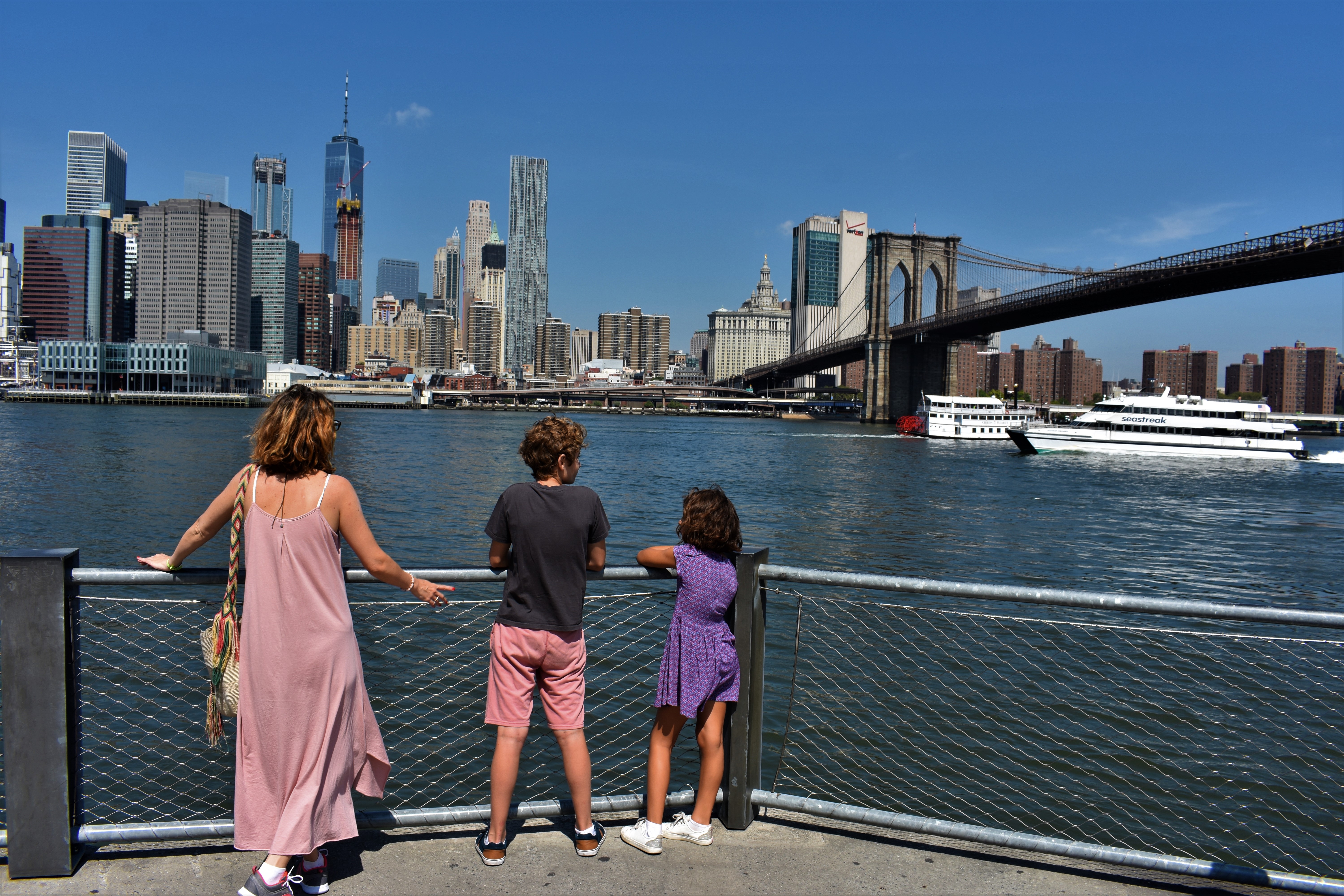
by Stone
Before my gap year, I was thinking of majoring in International Relations, Political Science or something related. Because of my experiences in Nicaragua and at Tufts since then, I have realized that though those relatively mainstream majors would look good to employers, they won’t give me the skills I need to accomplish what I want to do in life. The work I did last year on my CBIP (community based initiative process project) and a gap-participant organized workshop on the environmental impacts of littering combined with a city-wide trash cleanup event gave me experience with grassroots community development/leadership projects. This helped me figure out that these type of projects, on various issues and scales, are what I want to be the focus of my future career.
I went into the Tufts 1+4 orientation with about as much good intentions as ignorance. All I knew was that I wanted to help people less fortunate than me, but had little idea how to go about doing it. I was brought up surrounded by stories of individuals who went to far off lands and nearly single-handedly “fixed” the locals’ problems, commercials advertising the good feeling one could get from “saving” a child’s future for the small price of a cup of coffee, and the general culture of American superiority and white/western saviorism. As a result, I greatly overestimated my abilities, usefulness, knowledge, and irreproachability of my intentions. The Tufts and Amigos orientations and workshops opened my eyes to the way that white/western saviorism, voluntourism, and the desire to assuage personal guilt factored into my views and motivations. They educated me on the importance of working with and learning from community members and the value of sometimes taking a backseat or behind-the-scenes role in the process. If I made myself indispensable to the changes the projects enact, they would collapse when I left, rendering my work entirely useless in the long term. Through my projects I got to put my new knowledge to use and see how fully respecting, valuing, and engaging community members not only added to the quality of my projects but also of my friendships and experience as a whole.
Having returned from Nicaragua and entered college, my experiences there directly shape my decisions today. I realized that the most important things I learned last year aren’t the type of things that I would learn in a “normal” major. Most degrees would give me academic knowledge that I could then apply to actual jobs in relatively structured, rigid ways. If I only train for one thing, I will only be able to do one thing. If that one thing was exactly what I wanted to do, then that would be fine, but unfortunately, International Development is not an undergraduate major offered at Tufts. Working on grassroots level community development projects requires a host of abilities. Therefore, an interdisciplinary major is what I need in order to develop a well-rounded set of skills that I can apply to a variety of different projects in my future.
Peace and Justice Studies seems to me to be the best fitting major. Through it, I can learn about problems nationally and internationally that cause unrest and inequality on different scales, as well as potential solutions. It also has enough flexibility for me to choose how much I focus on each of those areas. Its internship-class combination requirement would let me use my knowledge in real-life situations and reflect on the process in a classroom environment in a way that would really round out my skills. The fact that I can major in it alone will allow me to take other classes in Economics, Education, and Global Health that will give me knowledge that I know will be important to my career, but are not necessary to the major.
However, the Peace and Justice Studies major is likely going to be replaced with Civic Studies. While Civic Studies compliments many of my interests, I am worried that it will not have a sufficiently international focus and will concentrate too much on government for my needs. I definitely want to work mostly abroad and in an NGO. I think that the US government generally approaches international projects with a savior mentality, and national governments in general are too large and disconnected from individuals to make the kind of changes that I want to make. Also, Civic Studies will only be offered as a second major. Thus, I would have only three years to fulfill the requirements of it and another major, giving me no time to take outside classes.
When it comes to getting a second major alongside PJS or Civic Studies, my experiences last year have informed my views there too. I now know that it would be a waste to take classes with the primary purpose of getting a degree and having something official on my resume. Their primary purpose should be to effectively give me one or multiple skills that will help me in my future. I did previously consider double majoring in Spanish, but ended up deciding not too. While I have already taken Spanish classes at Tufts and do intend to take more, I know that I don’t have to actually major in in Spanish in order for it to mean something.
Languages are not my strong suit and majoring in one would add a huge amount of unnecessary stress to my life. If I majored in it, a skill level near native fluency would be expected of me, which taking even ten Spanish classes would not give me. What I should do instead is to take enough classes to improve my skills, but then rely on using them in real world situations to get them beyond the point that I could from just classes. I’m also trying to take interdisciplinary Spanish classes. Analyzing fifteenth century Spanish literature on its own is not going to get me much of anywhere. But analyzing the relationship between different groups of people and the earth during the Spanish conquest of the Americas and onwards, as I do in my Spanish 22 Tierra, Clima, y Justicia class, will give me historical context to more deeply understand modern day dynamics in interactions between different peoples, the environment, and each other.
All in all, my gap year widened my view of the world and made me more certain of my choice of future career. My experiences gave me better priorities, rekindled my intrinsic motivations for learning, and redefined my ideas of success. Instead of wanting credentials that look good on paper, I want to expand my knowledge in useful ways and have the freedom to explore. I matured a lot last year in ways that make me more prepared to fully take advantage of my college experience to prepare for a better future.



















